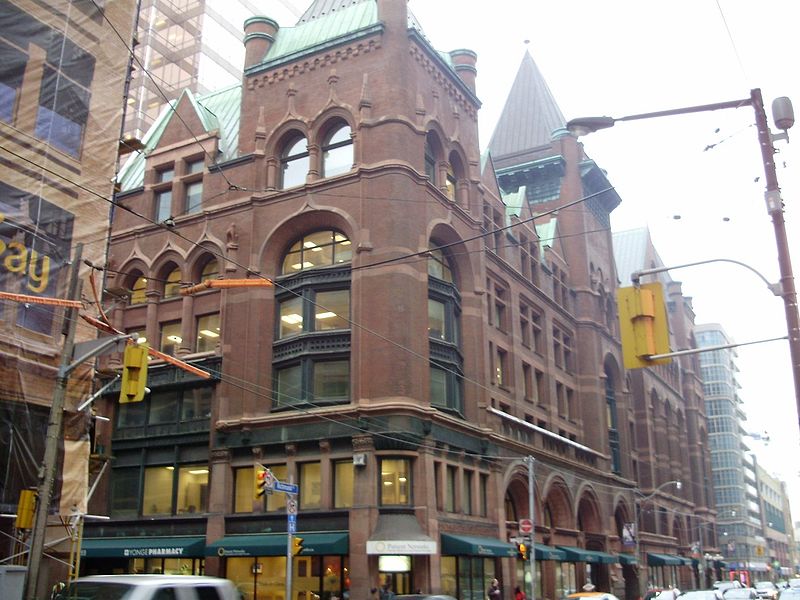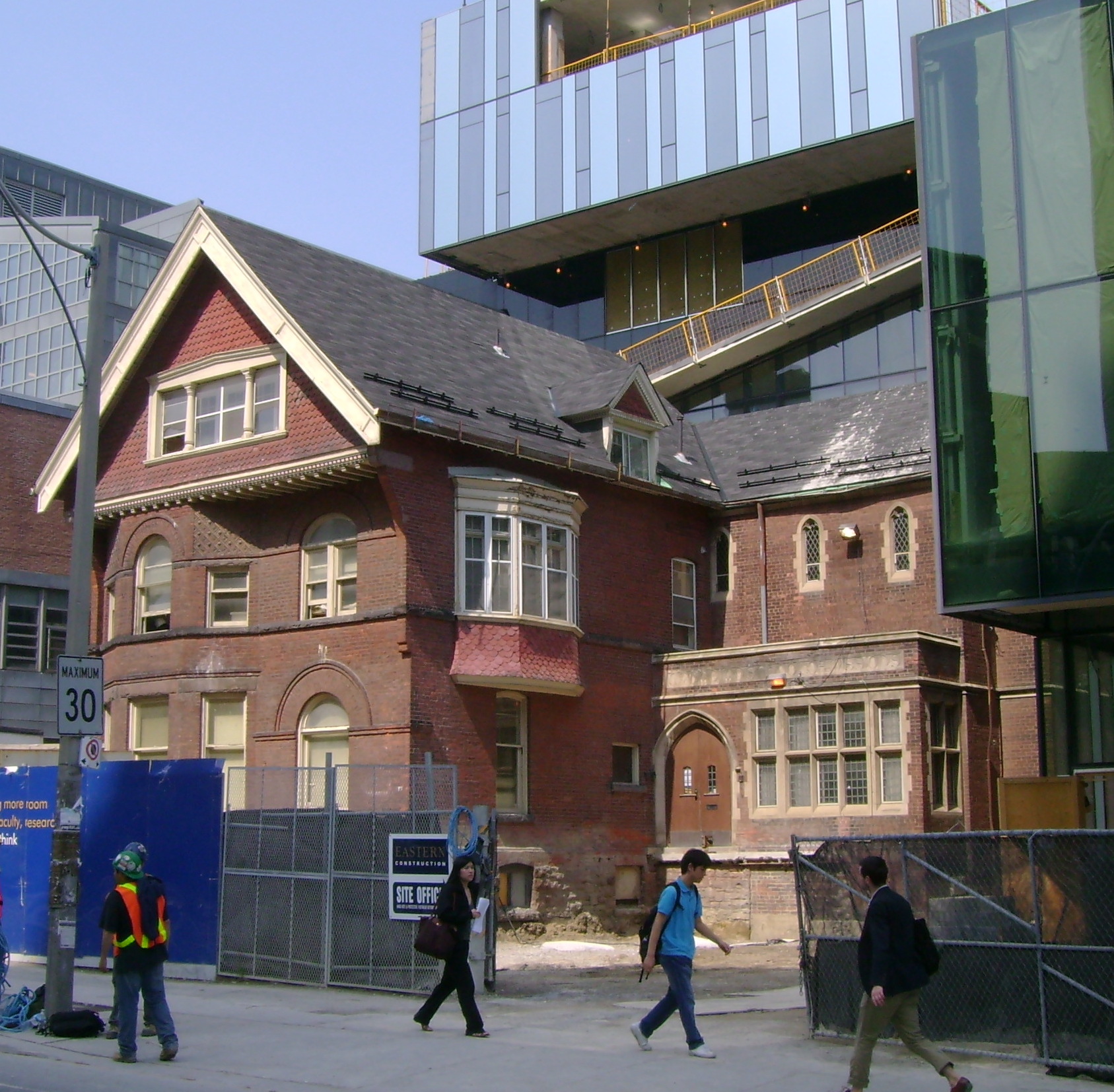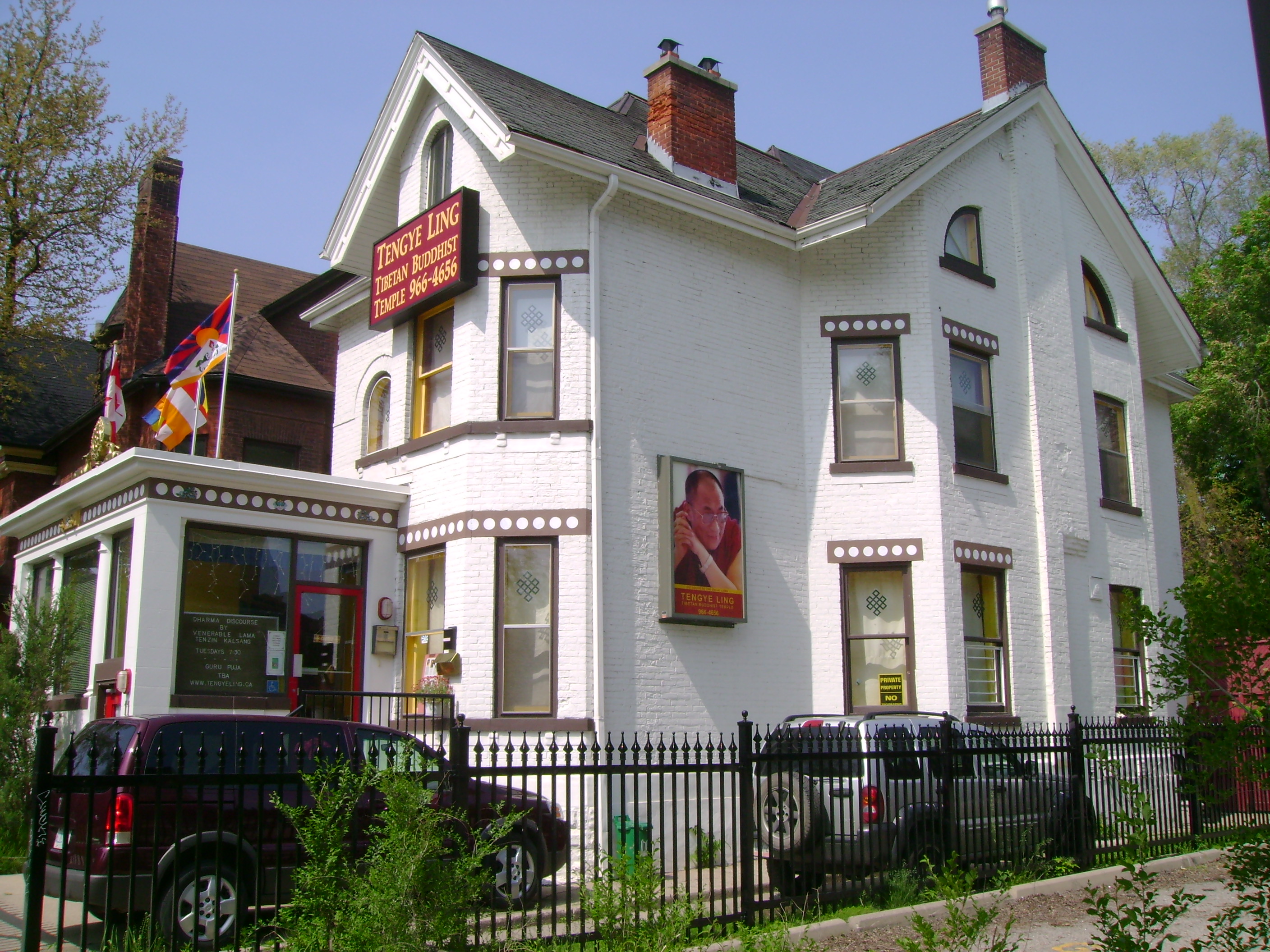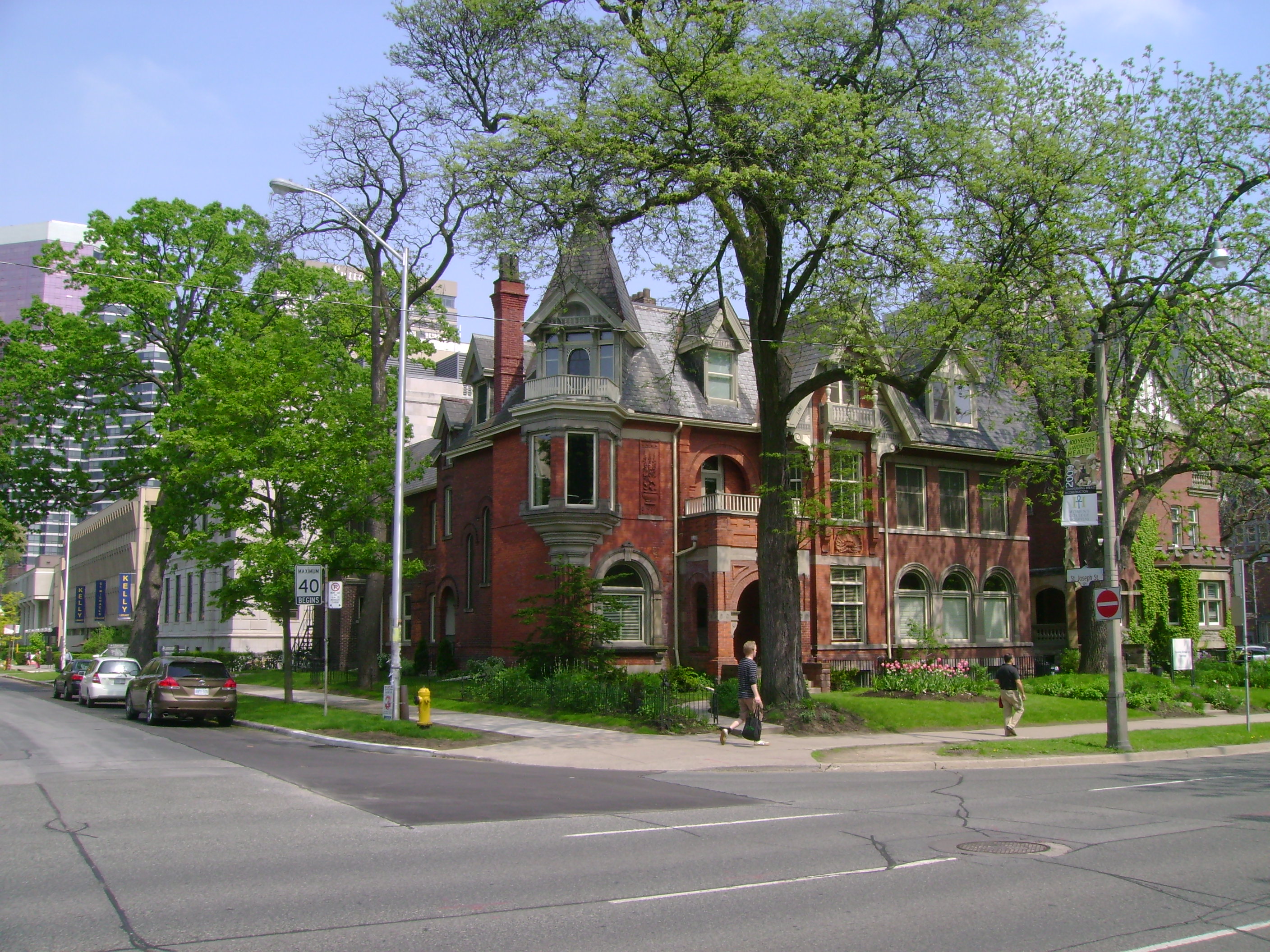Formerly The Canadian Churches’ Forum for Global Ministries, Ecumenical Forum of Canada, Ecumenical Institute of Canada, Canadian School of Missions and Ecumenical Institute, & The Canadian School of Missions.
The idea that would evolve into what is now the Canadian Council of Churches Forum for Intercultural Leadership and Learning took shape during discussions on mission and mission training following the Edinburgh Missionary Conference of 1910. This was a seminal event in the history of twentieth century Christian mission and ecumenism.
1910In 1917 representatives from several Protestant mission boards and several theological colleges which were part of the University of Toronto began an extended conversation which resulted in the founding of the Canadian School of Missions. The founding denominations were Anglican, Baptist, Congregational, Methodist and Presbyterian. The chief contributors were Canon S. Gould (Anglican), Rev. J.G. Brown (Baptist), Dr. James Endicott (Methodist), Dr. R.P. Mackay (Presbyterian, Chancellor Richard Bowles and Dean Edward Wallace (Victoria College), Professor F.H. Cosgrave (Trinity College) and Principal Alfred Gandier (Knox College). After a great deal of planning, it opened with a gala celebration at Knox College in 1921.

The Canadian School of Missions’ first office was in the Confederation Life Building in Toronto (Yonge and Richmond)
1921The school’s first director was Dr. J. Lovell Murray, a former missionary and participant in the Student Volunteer Movement. His hiring began a long connection with students. The school’s first home was a desk in the corner of the office of the Rev. H.C. Priest, Secretary of the Missionary Education Movement, in the old Confederation Life Building. It soon “outgrew” the desk and began a ten-year nomadic existence in which it “outgrew” place after place until finally it was decided to buy a building. As is still the case, much of the School’s work was funded by donations from churches and individuals and in 1928-29, a campaign committee raised $55,000 which was matched by the Rockefeller Foundation to purchase its first property at 97 St. George Street. The building still bears the stone inscription, “Canadian School of Mission”.

The first permanent building of the Canadian School of Missions at 97 St. George Street in Toronto is now part of the Rotman School of Management.
1920sIn the early days of the School, the Student Volunteer Movement and student mission study groups of the arts and medical colleges made time for courses in mission. Many university and theological college professors gave voluntary assistance in instruction. In the 1930s, the first of many lecture series, the N.A. Powell Lectures, began which attracted prominent international church personalities such as Dr. John R. Mott and Professor K.S. Latourette to speak on different aspects of Christian missionary service. Interest in mission amongst the laity was high and the lectures were well attended and reported on in each of Toronto’s daily papers.
The school ran a number of programs designed to raise awareness of the work of missionaries as well as to prepare those offering to become missionaries. Alongside the lectures, ongoing courses were prepared for missionaries on furlough. In the 1930s, the pursuit of higher degrees to satisfy the requirements of educational and medical instruction resulted in the development of elective courses for theological and training college students and the establishment of the Missionary Orientation Courses. The school also functioned in those early days as a sort of club and activity centre for returned missionaries.
1930sIn 1947, Dr. Murray retired and was succeeded by Canon T.W. Isherwood and a year later by Dr. L.S. Albright. One of Dr. Albright’s first projects was the co-founding of the Toronto Institute of Linguistics with Dr. Eugene Nida of the American Bible Society. This was a huge program which by the late 1960s had an annual registration of between eighty and one hundred students and in which twenty-nine mission agencies participated. In fact, it was so successful that it became an institute in its own right.
1940sDuring the 1950s, the Canadian School of Missions’ building was a very busy place. It served as a meeting hall and a home for the missionary groups of its participating churches as well as numerous other bodies. Women’s Inter-Church Council was housed at the School for many years. Their presence was important to the life of the School because it added a specifically ecumenical development to what had already been an unofficial ecumenical centre.
By the late 1950s, the Canadian School of Mission was running several programs: courses on Christian mission for university students; courses for missionaries on furlough; the Toronto Institute of Linguistics; an expanded version of the Missionary Orientation Conference, memorial lectures; customized tutoring programs; not to mention maintaining a very specialized missions library. The J. Lovell Murray Memorial Lecture Series was inaugurated which over the years would attract such eminent international personalities as Dr. Frank W. Price, Dr. M.M. Thomas and Dr. Jose Miguez Bonino.
1950sBy 1960, the global ecumenical scene was changing and a special conference was held to try to decide what the school’s focus should be in the future. One of the conference’s recommendations was that the Canadian School of Missions should join the Canadian Council of Churches (CCC) in creating an ecumenical centre. In 1962, the School was reborn as the Canadian School of Missions and Ecumenical Institute. The reorganized school continued to carry on the programs of the Canadian School of Missions but added to its mandate other study interests and concerns of the ecumenical effort.
1962Upon Dr. Albright’s retirement in 1963, Canon H.L. James Puxley was appointed the School’s new director. Canon Puxley had previously been working as Secretary to the CCC’s Departments of Overseas Missions and Evangelism. Mrs. H.C. Priest was also hired as the first full-time librarian. The following year Dr. Katharine Hockin was appointed the first Dean of Studies. She organized several courses in Ecumenics which attracted both Protestant and Catholic students and was to become one of Canada’s leading missiologists and ecumenists. Shaped by engaging the Global Church, the work of the School in this and the decades that followed would be increasingly focused on issues of justice in both global engagement and in encounters between cultures.
At roughly the same time, the Canadian Theological Students’ Conference, which had been run by the Student Christian Movement for ten years, was transferred to the School at the request of the students. For the first time, the conference was able to include Roman Catholic students in the wake of the Second Vatican Council. A visiting scholarship, the Kaufman Fellowship, for students in mid-career with proven competence in missiology and ecumenics was funded. This began what later became known as the International Visitor Program. Another program, “Open Evenings” featuring World Council of Churches (WCC) visitors was also sponsored. The nationally acclaimed bible study program sponsored by the School was also undertaken. This program consisted of church based ecumenical bible studies on a wide variety of topics. This was truly the zenith of the School’s activity.
Early 1960sIn 1965, the Canadian School of Mission and Ecumenical Institute underwent another major reorganization. The phoenix arising from the ashes was renamed the Ecumenical Institute of Canada and offered programs under four major headings: Academic, Consultative, Research and Reference. A visiting professor program was established to bring world scholars to the Institute.
This was also a particularly fruitful time for guest lecturers; both the Cody Memorial Lecture Series and the Gallagher Lecture Series were undertaken which brought to Canada such well-known speakers as Dr. Raymond Panikkar, Rev. R.M.C. Jeffrey, Bishop Stephen Neill, Dr. Vissr ‘t Hooft, Brother Thomas of the Taize community, Bishop R. McAdoo and Dr. Philip Potter.
In the late 1960s, the Institute took on several special research projects such as the “Sexuality and Family Life Study”, a national conference on the meaning of “Ecumenical,” and a joint study with Roman Catholics on religion in education. Other key projects forwarded by the Priorities and Development Committee of the CCC were “Salvation Today” and “Faith and Order” Commissions.
Late 1960sIn 1969, the University of Toronto succeeded in expropriating the Institute’s building at 97 St. George Street and it moved to 11 Madison Avenue. That same year the new Toronto School of Theology (TST) was born and the new graduate faculty made arrangements to take over all courses previously taught by the Canadian School of Missions with the exception of those in the area of missiology. An invitation was issued to the Institute by TST to provide instructors for two courses under its aegis, one in general missiology and the other in methodology.

11 Madison Avenue, Toronto
1969Shortly after the move to Madison Avenue, confusion between the Ecumenical Institute and the Ecumenical Institute of Chicago, located at 17 Madison Avenue, necessitated a name change. It became the Ecumenical Forum of Canada but continued to focus on missionary training programs and lecture series. In October, 1974, the first issue of the bi-monthly “Fish Eye Lens” newsletter was published to help disseminate the growing amount of information on mission and ecumenism accumulating at the Institute.
1970sIn 1973, it was decided to stop and take stock of the churches’ present ecumenical needs. Outside consultants, Janet Somerville and Charles Hendry, were hired to analyze which programs existed in the Toronto area for preparation for ministries other than that of Word and Sacraments. They were also to gauge how willing people were to work ecumenically and, whether it was feasible to create some sort of united effort in this field. Their report, “An Affection for Diversity”, was published with the recommendation that the Forum should focus on its heritage as a school of mission. It should become a centre for understanding world mission, for teaching missiology and to help end ethnocentric pride and narcissism, racial bigotry and mono-cultural blindness. Finally, it should be a centre for inter-faith encounter, study and reflection. Also part of their recommendations was the suggestion that once again the Forum’s name should be changed to reflect its intercultural and Christian focus.
1973It would take six years and the interim staff team of Sister Veronica O’Reilly and Arturo Chacon to shepherd the Forum through the massive changes suggested by the “Affection for Diversity” report. At the end of this challenging period, Lois Wilson and Michael Cooke came on board as Co-Directors of the Forum. The new Forum was a streamlined entity with a smaller Board of Management and a narrower focus of activities. The Forum’s program emphasis began to shift in the 1980’s from academic courses on mission to cross-cultural mission education, especially with the growth of the International Visitors Program and participation in the Canadian Theological Students’ Study Tours. International visitors included Dale Bisnauth from Guyana, Sun Ai Park from Korea, Mercy and Modupe Oduyoye from Nigeria and Karl Gaspar from the Philippines. The Forum also initiated the Canadian Theological Reflection Project which told the stories of the Canadian ecumenical coalitions and eventually led to the publication of Coalitions for Justice in 1994.
1980sIn October 1989, after another extensive re-visioning and restructuring process, the name was changed to the Canadian Churches Forum for Global Ministries. The “Fish Eye Lens” was discontinued and the new semi-annual publication, “Forum Focus” was born. The system of Co-Directors continued with Patricia Talbot and Tim Ryan until 1994 when a new staff configuration of three coordinators was put in place.
1989Programs continued to shift and change to meet the needs of member churches and other participants and to respond to the challenges of living in a global church. A number of Missionary Personnel Programs were offered: Mission Discernment, Orientation, Furlough, Reentry and children’s programs helped to support those who are involved in international cross-cultural ministry. The Forum also offered programs for short-term visitors to Canada and for Canadians engaging in shorter term cross-cultural ministry. A number of resources were published that continue to be used by churches around North America, including, “Coming Home” and “On Your Way”. The Forum continued to sponsor and staff the Canadian Theological Student’s Conference and the International Visitor Program.
The 1990s saw an increased networking with other ecumenical organizations and participation in shared projects, including the “Ecumenical Presence Project” at the time of the Fourth Latin American Bishop’s Conference on the 500th anniversary of the arrival of Columbus in the Americas, the Faith and Justice Training Project (a series of workshops being held across Canada to promote economic literacy and theological reflection), and the WCC study on “Gospel and Culture”.
The 1990s also saw changes at the Forum’s member denominations which resulted in decreasing financial resources. Where once there were several staff, now the agency had one full time coordinator, the Rev. Dr. Bob Faris, and occasional contract staff for programs. With decreasing resources the Forum sold its building at 11 Madison. As in the early years of the Canadian School of Missions, the Canadian Churches Forum for Global Ministries began another period of nomadic existence without a permanent home.
1990sIn many ways, in the beginning of 21st century, the Canadian Churches Forum for Global Ministries was shaped by the continuation of the events and trends that led to the Edinburgh 1910 conference and the establishing of the Canadian School of Missions.
The churches of the Majority World (global south) who first began to make themselves known at the beginning of the 20th century had become no longer dependent on their “mother” churches in the “north”. In fact Christianity in North America and Europe now was far outnumbered by the Majority World Church. At the end of the 20th century several of the Canadian Churches entered into a process of apology and reconciliation with Canada’s First Nations people as it became aware of the abuses and damage to culture done by the residential school system. This led to changes in how the churches viewed all of its mission activity. Rapid increases in globalization and changes in technology changed the world. Where the Canadian denominations used to send hundreds of long term missionaries, now they sent only a handful. There were massive movements of people who were forced or chose to migrate. Canadian cities became increasingly diverse.
At the beginning of the 21st century, the Forum, located in Toronto, found itself in a city where the majority of its citizens were either first or second generation Canadians. Millions of Canadians traveled short term as tourists, to work as volunteers, on mission trips, as part of their regular work, or to visit family. Meanwhile the national churches connected with the Forum continued to decrease their budgets and staffs, including in the parts of the national offices that used to be engaged in global missions. In some denominations this work of the national churches was ended or moved to more local expressions of the church.
First Decade of the 21st CenturyOver a short time as director, Carlos Hugo Parra-Pirela, led the Forum through a revisioning process and a further downsizing of the organization which took it out of years of deficit financing. Among other measures, staffing was further decreased and the Canadian Theological Students Conference was taken over by the Churches Council on Theological Education in Canada. The Forum began renting space in the Toronto School of Theology Building which also housed a number of other ecumenical agencies.
In 2005 Alice Schuda and Rev. Jonathan Schmidt were hired as Co-Directors. This wife and husband team job shared the position. Under their leadership the Forum began a number of new initiatives. The Forum began to resource best practices for short term mission through the publication “Sojourning: A Leaders Guide For Short Term Mission Travel”, seminars for mission trip leaders, and links to research on travel. Workshops on intercultural ministry in Canada were offered and the Forum became more involved in anti-racism work. Several US denominations began sending their mission personnel to the Forum orientation programs.
The Canadian Churches Forum for Global Ministries continued to act as a ‘forum’, providing a space for conversation and dialogue for the Canadian Churches around issues of mission. The Forum also became more involved in facilitating this kind of space for a number of US denominations.

The Canadian Churches Forum for Global Ministries’ office is now in The Toronto School of Theology Building, 47 Queens Park Crescent East in Toronto
First Decade of the 21st CenturyIn 2010 The Forum helped initiate the Canadian involvement in the 100th anniversary of the Edinburgh 1910 conference. As both a colonized and colonizing nation, Canada provided a unique perspective leading one of the conference themes, “Mission and Power”, using the residential schools experience as a case study.
In 2011 The Canadian Churches Forum for Global Ministries celebrated its 90th anniversary. A tradition throughout the history of the Forum, it found itself once again having to revision and restructure to respond to its changing context and learning gained from engaging in global mission and intercultural encounters. 2011 marked rapid changes at several of the denominations and much of the Canadian Ecumenical community was challenged to rethink how it worked together. The Forum had become a small well run agency with stable finances. However the question it faced was how to offer it’s resources and learning of 90 years to a changing Canadian Christianity and beyond.
In 2012, while still offering programs for global engagement to a small number of participants, the Canadian Churches’ Forum changed its focus to issues of diversity and inter-cultural ministry within Canada. This led to the establishment of the “Engage Difference! Deepening Understanding for Intercultural Ministry” program offered and shaped in contexts across Canada. The agency’s mission was rewritten as: “The Canadian Churches’ Forum is an ecumenical agency that works in partnership with others to foster intercultural learning, leadership, and ministry”.
Recognizing the ways context shapes ministry program offerings were intentionally moved out of Toronto and offered in locations across Canada beginning with Vancouver, Saskatoon, Winnipeg, and Toronto. Canada’s increasing diversity through migration and the calls to action of the Indian Residential Schools Truth and Reconciliation Commission shaped the work. In 2017 bilingual (French/English) program was offered in Montreal and in 2019 a francophone program. A network of alumni of the programs were supported and resourced as facilitators of intercultural ministry across Canada.
2010-2012In 2017 conversations begun in 2008 with the Canadian Council of Churches led to a new identity: “Forum for Intercultural Leadership and Learning (FILL): A Reference group of the Canadian Council of Churches”. FILL. is fully part of The Canadian Council of Churches, reports to its governing board, and works with all of its member denominations.
In 2018, the Canadian Ecumenical Anti-Racism Network (CEARN) became a part of FILL. Out of a nation-wide stakeholder consultation that year emerged a FILL Training for Transformation (program) group and a FILL Theology and Research group This group fosters well-done theologies of racism and interculturality out of Canadian contexts. In 2021 this group created "Toward Interculturality Framework and Guiding Principles: An Invitation to Conversation and Dialogue." Jonathan Schmidt's 2021 doctoral thesis engaged focus groups of program alumni. They identified the lived experience of Interculturality within its programs as the greatest resource of FILL.
COVID (2019-2022) saw the creation of on-line webinars, talking circles, and workshops. An on-line version of the Engage Difference! program was offered in 2022. In 2023 in-person programming resumed with Engage Difference! programs in Paris, ON and Edmonton Alberta.
FILL celebrated its 100th anniversary in 2022 with the publication of a chapter on its history and work in the World Council of Churches initiated, "Creative Collaborations: Case Studies of North American Missional Practices"
Building on the resources and learning of over 100 years of history of its predecessor institutions the mandate of the FILL is:
The Forum for Intercultural Leadership and Learning of the Canadian Council of Churches is an ecumenical Christian partnership through which Canadian Churches work toward intercultural leadership development and ministry learning in Canada and Globally.
2017Based on an address given by Teresa Burnett at the 75th Anniversary Celebration. Updated in 2014 and 2023.

CONTACT
47 Queen’s Park Crescent East
Toronto, ON M5S 2C3
T: 416.972.9494
TF: 1.866.822.7645
Project Ploughshares
140 Westmount Road North
Waterloo, ON M2L 3G6
T: 519.888.6541
© 2022 The Canadian Council of Churches
Site developed by Navicarta